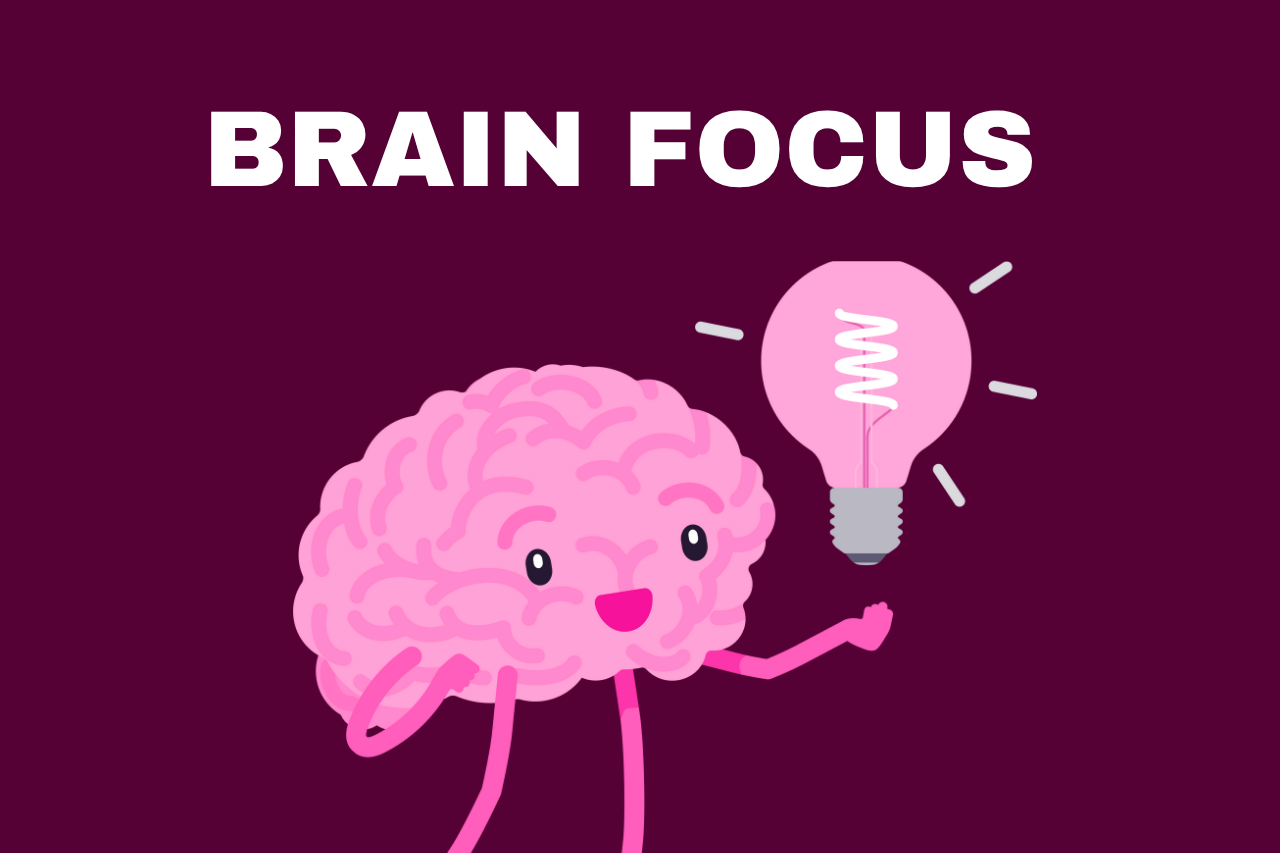How to train your brain to focus
Introduction
Today’s technologically advanced world is slowly making it harder for our minds to focus properly. We are bombarded with constant changes in technology, endless messages, and multiple, interconnected tasks. You may have tried to multitask, but instead of making progress, you feel overwhelmed and unproductive.
Focus is a critical skill that can guide you to success in any area of your life—whether it’s your studies, career, or personal growth. It’s like turning on a light switch, where you use all your energy to clearly reach your target. Fortunately, focus can be trained. With scientifically proven strategies, life experiences, and healthy habits, you can move from distraction to a more focused state.
Let’s start by understanding what focus is, why it’s important, and what the obstacles are.
What is Focus ?
Focus is the ability of your brain to focus on one task while ignoring other distractions. It’s like using a microscope to see extraordinary detail. When your focus is sharp, you’re able to accomplish things at a faster and more efficient rate.
The Science of Focus
Scientifically, focus involves several different parts of the brain. The most important part is the prefrontal cortex, which is the area where decisions are made. Your brain functions as an energy management system—when there’s too much distraction, that energy is depleted, making it harder to stay focused.
Brain Chemistry
The human brain has a remarkable chemical system that greatly influences the ability to focus. One of the most important hormones that also plays a role in this is dopamine. Dopamine is like the brain’s motivational chemical—it stimulates your desire to get things done and get things done. When dopamine levels are consistently high, you feel motivated and energetic, allowing you to focus on a particular task for longer periods of time.
However, if dopamine levels drop, your brain can easily lose focus. You may feel bored, procrastinate, or even want to give up on the task at hand. This is why it’s important to support healthy dopamine levels through daily actions, such as eating nutritious foods, exercising, and even getting quality rest.
In addition, other neurotransmitters like serotonin and norepinephrine also play a role. Serotonin improves mental stability and helps you stay focused, while norepinephrine boosts your alertness when you need a little extra energy. The combination of these hormones is the foundation of your brain’s ability to stay focused and perform at its best.
Challenges That Impair Focus
1. Multitasking
Did you know that multitasking is not a sign of high performance? The human brain is not fully capable of doing things at the same time. Instead, it switches from task to task, which reduces quality and productivity.
2. Digital Busyness
Smartphones, instant messaging, and social media open doors to constant distraction for your brain. Every time you feel your phone vibrate or hear a new message, your brain automatically switches to responding, which distracts you from the task at hand.
3. Sleep deprivation and fatigue
Your brain needs energy, just like your body. Lack of sleep causes mental fatigue, which reduces your ability to perform. Therefore, quality sleep is a basic requirement.
Ways to Improve Focus
1. Set Clear Goals
Focus requires a clear plan. Instead of saying in general terms, “I will get a task done,” start with short, measurable goals. For example, instead of saying, “I will finish a project,” you could say, “I will finish the first part today.”
2. Learning Mindfulness
Mindfulness is a powerful technique that allows you to be fully present and focused on the present moment. Instead of getting distracted by future worries or thoughts that are racing through your mind, mindfulness helps you focus on the present. It’s a powerful and important skill, especially in these busy times.
Mindfulness techniques include simple, mindful breathing. You can consciously focus on your breathing, noticing how air is moving in and out of your lungs. This helps you calm your mind and focus better on the task at hand. Additionally, spending a little time regularly practicing these techniques can increase your attention span and calm your mind when things are constantly changing.
Mindfulness is also like reprogramming/calming the brain. It helps you to consciously block out distractions or negative thoughts that can cause you to become distracted. This not only improves your ability to focus, but it also reduces stress, allowing your mind to function more clearly and effectively. If you use this method regularly, you will see improvements in your focus and performance that will affect your entire life.
3. Pomodoro Technique
This technique involves focusing on a specific task for 25 minutes, then taking a 5-minute break. It is a simple strategy that helps you maintain your energy for longer periods of time without getting tired.
4. Create a Quality Environment
Your work environment has a huge impact on your ability to focus. Clean up your surroundings and create a calm and relaxing environment for your mind.
Lifestyle Habits That Boost Focus
1. Healthy Eating
Your brain needs nutrients to function well.
Foods That Help Your Brain
Drink Plenty of Water: A healthy brain needs constant hydration.
2. Regular Exercise
Exercise increases blood flow to the brain, which leads to alertness and strength.
3. Quality Sleep
A good night’s sleep restores your brain’s energy, which improves your ability to focus.
Conclusion
Focus is a skill that anyone can benefit from if practiced properly. If you follow these strategies—starting with clear goals, mindfulness, and a healthy lifestyle—you can gain strong mental strength. Try one strategy today, and see the difference it makes.



2 Comments
Comments are closed.